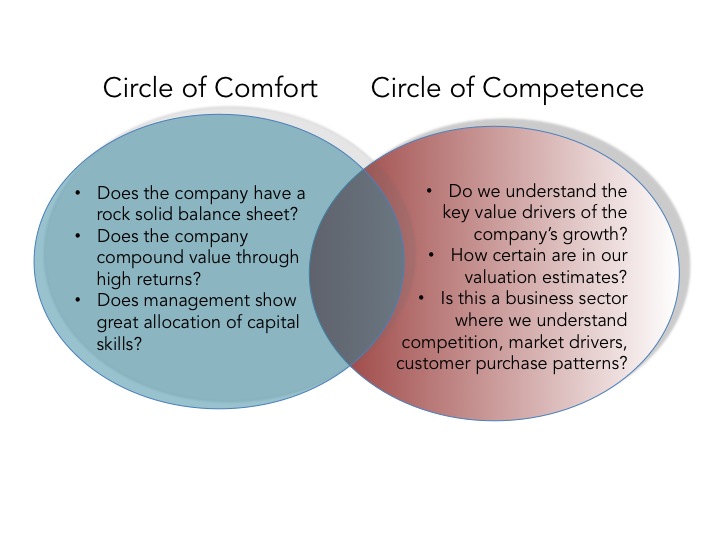I bring this up because the saga of Valeant Pharmaceuticals (NYSE:VRX) is something akin to the situation U.S. Steel found itself in during its labor negotiations. In its bid to find a new business model, the cost savings it looked to achieve simply moved risk from the income statement to the balance sheet. This sleight of hand produced a company that generated significant returns for investors for awhile but unfortunately was based on a foundation of very weak nature.
There is value in the company. Its Bausch & Lomb unit is a first-class ophthalmology company with considerable free cash flow. Other pieces of the company - with real products producing income - are also worth something, though perhaps less than some analysts think. However, $30 billion in debt undermines the value of all of these.
In general, biopharma companies take a great deal of risk discovering and developing new drugs. Much of this research and development has been outsourced to large contract research organizations (CROs) that conduct much of the legwork in the R&D process. This doesn't mean that large biopharmas remove the risk from their financial statements. Far from it. Most of these companies spend up to 18% of revenues in this discovery and development process. It’s a very messy business. Just ask any company that has spent money on Alzheimer’s research[1]. What made Valeant so different was it announced it was removing this risk by not engaging in any R&D. In fact, CEO Michael Pearson made clear that R&D was for - as Donald Trump would say - “losers.”
Valeant swapped R&D for debt
But there really is no way to avoid the discovery and development of new drugs. You can either take the job on yourself like the larger biopharma firms, or you can transfer that risk as debt on the balance sheet from acquisitive behavior. It should be noted that this latter approach has almost never worked in the past and rarely works now.
Want the financial benefits of curing disease? You have to take the risk yourself by doing the work yourself. Valeant chose to avoid such risk by acquiring small companies with generic or branded products already in the marketplace. This worked for awhile as it utilized price increases on these existing products to mitigate the danger of enormous amounts of short- and long-term debt. With both government agencies and payers taking a much harder look at such increases, the ability to meet this debt obligation looks far shakier.
Valeant’s gamble on growth
With this acquisitive strategy you’d better be awfully successful at choosing the best drug candidates. Recent moves by Valeant show it may not be as gifted as it thinks. Its recent acquisition of Sprout for Addyi – a drug for the female libido (think of it as a female Viagra) – has been problematic at best. Insurers are denying or limiting coverage for the daily pill and large pharmaceuticals benefit managers are blocking it. The result: Many prescriptions written by doctors aren't getting filled. Projected sales of $1 billion have turned out to be wildly off. As to its comparison to male libido products, prescriptions for Viagra totaled 598,452 between March 27,1998 (when it was approved) through the end of April 1998, based on data from IMS Health. Addyi prescriptions totaled 227 from Oct. 17, when it became available to the public, through Nov. 6. Reasons for the difference? The drug provides results for only 10% more women than those on placebo and has severe requirements such as a total prohibition on alcohol. Failures of this sort can lead to disaster when your finances require a steady growth of increasing free cash flow to meet extraordinary amounts of debt.
There are three general lessons that we can learn from Valeant as we go forward.
When people say they have a new paradigm, watch your wallet
Throughout the history of health care, people have been pushing new reality-bending solutions to old problems. These include everything from cancer prevention products and weight loss products to zero-risk investment opportunities. In nearly every case there is a twist on a very old problem. Paradigm shifts can be very costly to your personal finances whether it’s that special GNC(NYSE:GNC) no-exercise diet or making money with little/no risk.
Excessive greed is not a corporate strategy
In the long term, excessive greed has a tendency to end badly on Wall Street. There is a certain amount of decency that is required in the business community. Fifteen percent profit margins are one thing, but 150% margins are – as Keb' Mo' would say – a "whole 'notha thang." Valeant’s overreach wasn't just the vast expansion of its balance sheet but the unmitigated greed in the price increases of its product line.
Financial markets are about trust
Ultimately Wall Street works on trust. Organizations have to believe that each will pay the other back, clearing houses will respect agreements, and investors have confidence in their investment holdings’ management. In Valeant’s case, Wall Street and investors have lost complete faith in the intelligence, integrity and competence of corporate management and its strategy. When that happens, there are very few places for that company’s investors to hide.
Conclusions
During their labor relations in 1947, U.S. Steel lost sight of its negotiation demands and its impact on the core business. In more modern parlance it bit its nose to spite its face. Valeant could learn a lot from those negotiations. The “new paradigm” of eliminating R&D only shifted risk from the income statement to the balance sheet. Its business model of increasing prices only added to that risk. When investors began to see that risk had not been mitigated by Valeant’s corporate strategy - but increased dramatically - the inevitable losses took place. To not see the connection has taught the company - and its investors - a valuable lesson about the fool and his money.

 RSS Feed
RSS Feed